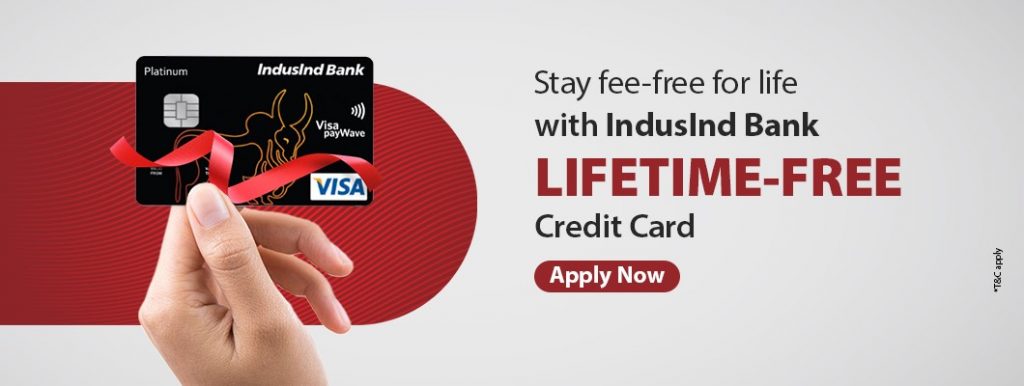
What are Hidden Fees in Credit Card Agreements?
Posted on Monday, May 8th, 2023 | By Indusind Bank
Credit cards are a convenient tool that many people use to manage their finances. They can be helpful in emergencies, and they allow you to make purchases without carrying cash. However, it is essential to be aware of hidden fees in credit card agreements to avoid surprises when you receive your bill.
Hidden fees are charges that credit card companies may impose that are sometimes not explicitly stated in the terms and conditions of the agreement. These fees can be confusing and hard to understand, and they can add up quickly, resulting in unexpected charges on your monthly statement. In this blog, we’ll take a closer look at some of the most common hidden fees in credit card agreements.
- Joining & Annual fee
Some credit cards charge a joining and annual fee for the privilege of using their services. If you’re considering a credit card with an annual fee, be sure to factor in this cost when deciding if it’s worth it. For example, if a card charges ₹2000 as annual fee, but you only earn ₹1000 in rewards each year, it may not be worth it to keep the card.
Some leading banks like IndusInd Bank offer LIFETIME-FREE credit cards that offer reward points that never expire and come with a one-of-a-kind Total Protect feature that covers you for any unauthorized transactions in case of loss/theft of card.

- Balance transfer fee
Balance transfer fee is levied when you move outstanding balance from one credit card to another. While balance transfer can be a good way to consolidate debt and save money on interest, it’s essential to consider the fee when deciding if it’s worth it. Be sure to calculate the total cost of the transfer, including the fee, to determine if it will save you money in the long run.
- Cash advance fee
Cash advances fee is charged when you withdraw cash from an ATM using your credit card. While this may seem like a convenient way to access cash, it can be expensive. Most credit cards companies charge a cash advance fee, which is typically a percentage of the amount withdrawn, usually around 2.5% to 5%. Cash advances should be avoided unless absolutely necessary, as they can quickly add up in fees and interest charges.
- Late payment fee
Late payment fee is charged when you miss a payment deadline. Late payments can also come with a higher interest rate penalty, making it more expensive to carry a balance on your card.
To avoid late payment fee, be sure to make at least the minimum payment by the due date each month. If you’re having trouble keeping track of your payments, consider setting up automatic payments or reminders to ensure you never miss a deadline.
- Foreign transaction fee
Foreign transaction fees are charged when you make a purchase in a foreign currency or outside of your home country. These fees can range from 1% to 3% of the total purchase price, and they can quickly add up if you’re traveling abroad.
If you travel frequently or make purchases in foreign currencies, consider getting a credit card that charges reduced foreign transaction fees. Some cards offer this benefit as part of their rewards program, so be sure to shop around before your next trip. Some leading banks like IndusInd Bank provide credit cards which offer discounted foreign currency mark up as low as 1.8% on foreign currency transactions.
- Overlimit fee
Overlimit fees are charged when you exceed your credit limit. This fee can vary but is typically around ₹500 to ₹1000 per occurrence. Credit card companies may allow you to exceed your credit limit in some cases, but they will charge you for the privilege. To avoid overlimit fee, be sure to monitor your credit usage and stay within your credit limit. If you do need to make a large purchase that will put you over your limit, consider asking the credit card company for a temporary credit limit increase or finding an alternative payment method.
In conclusion, hidden fees in credit card agreements can add up quickly and result in unexpected charges on your monthly statement. To avoid these fees, it’s essential to read the terms and conditions of your credit card agreement carefully, monitor your credit usage, and stay within your credit limit. By being aware of these hidden fees and taking steps to avoid them, you can better manage your finances and avoid unnecessary charges on your credit card statement.
If you’re looking for a credit card that encompasses all the benefits and rewards to match your lifestyle, check our offerings and you’ll definitely find your ideal pick. IndusInd Bank offers a range of lifetime-free credit cards that come with Total Protect feature and enable you to enjoy exquisite privileges and help save more with reward points that never expire.
Disclaimer: The information provided in this article is generic in nature and for informational purposes only. It is not a substitute for specific advice in your own circumstances. Hence, you are advised to consult your financial advisor before making any financial decision. IndusInd Bank Limited (IBL) does not influence the views of the author in any way. IBL and the author shall not be responsible for any direct/indirect loss or liability incurred by the reader for taking any financial decisions based on the contents and information.



 Offers
Offers Rates
Rates Debit Card Related
Debit Card Related Credit Card Related
Credit Card Related Manage Mandate(s)
Manage Mandate(s) Get Mini Statement
Get Mini Statement
 categories
categories Bloggers
Bloggers Blog collection
Blog collection Press Release
Press Release


